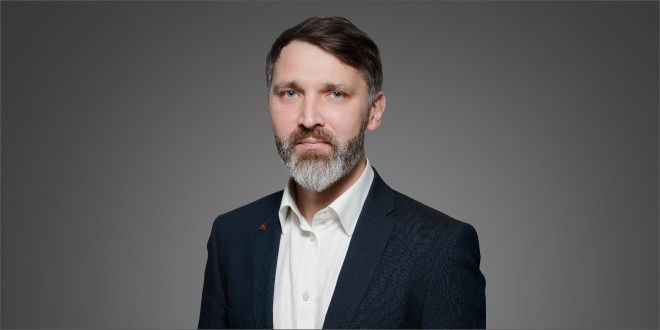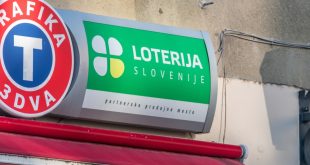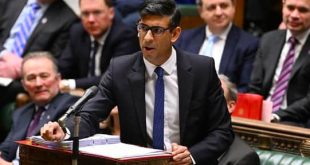Andrii Nekrutov, Chief Integrity Officer at BETER, discusses integrity best practices in sports and esports, with a focus on BETER’s in-house events such as its Setka Cup and ESportsBattle content streams.
Drawing on his extensive experience at INTERPOL as well as various security positions, Nekrutov outlines how important it is to bake integrity into every part of your organisation.
SBC: Can you begin by sharing any examples of challenges you’ve faced in your role and how you overcame them?
AN: The biggest challenge has been starting from scratch. Integrity needs to be built into the culture and values of an organisation and this is easier said than done. This includes the need to educate athletes that their reputation has more value than the cold hard cash they are offered to fix matches. Reputations take years to build but can be destroyed by a single bad decision.
I truly believe that the integrity lifecycle that we have created overcomes this challenge – we have put a lot of effort into developing and improving each pillar. I can say with confidence that integrity runs through the entire BETER organisation and that it is at the heart of our culture, and this is why we are so good at helping sports people understand the importance of integrity, the true value of their reputation and why they need to uphold it.
SBC: And how important is an integrity ecosystem for content providers like BETER?
AN: Integrity is paramount for providers such as BETER – it acts as the foundation from which we build trust with our operator partners and their players. Integrity is also at the heart of the wider sporting community, a community that BETER is very much a part of.
We take a zero-tolerance approach to integrity breaches and have developed an integrity lifecycle that we believe sets that standard for others to follow. This allows us to provide operators with confidence that our in-house sports and esports content meets the highest integrity standards, and in turn pass on, so their players know they are wagering on events and outcomes that are fair.
SBC: And what would you say are the main components of the BETER integrity policy?
AN: Our integrity lifecycle consists of four pillars:
- The rules and standards that make up our integrity policy – we then implement this policy across all of our live sporting events.
- The second pillar is education and awareness. We have developed a comprehensive e-learning program that all athletes and match officials must complete before they can work with BETER.
- Third is monitoring – each live contest is monitored by a team of dedicated experts in real-time to ensure any irregularities are identified without delay.
- As soon as they have a concern, they flag it for investigation – the fourth pillar of our integrity lifestyle. Our investigations are fully transparent, and we share the outcome with relevant law enforcement agencies and sporting bodies/federations who then take over and hand out any fines, bans, punishment, etc if necessary.
SBC: How do you stay up-to-date with the latest trends and developments in sports integrity, and how do you apply this knowledge to your operations?
AN: To create our integrity lifecycle, we undertook extensive market research. The policy itself is actually based on that of the International Olympic Committee and then tailored to our contests and products.
This sets a very high standard, but we are always analysing what we are doing to see if we are working as effectively as possible. We also talk with our partners, the federations that we work with and law enforcement to get feedback which we use to roll out updates and improvements. This way, we ensure our integrity lifecycle is fit for purpose and that we stay ahead of the game of match-fixing.
SBC: So, do integrity standards differ between sports and esports events? If so, how do you keep up with these changes to ensure fair play and prevent cheating in both contexts?
AN: There is no difference between the standards that we expect athletes to meet when it comes to traditional sports and esports. That said, there is a difference in the mindset of the respective athletes. Traditional sports players understand that integrity is of huge importance to the sport they play and the league or federation that runs it, but also to their own reputation as an athlete.
Professional esports is still in its early days, so there is work to do in terms of educating athletes as to why integrity is important to the wider sector but also to them as individual players. This is why we spend more time educating our esports players to help them understand that they are now considered by many in the same light as superstar football players. We help build awareness of the responsibility that comes with this not just in terms of their reputation, but also around sporting codes and local laws.
So we see education as the most important pillar of our integrity ecosystem as proper education mitigates the likelihood of an athlete – whether for traditional sports or esports – agreeing to fix matches.
SBC: How do you monitor and analyse data from sports matches/tournaments and esports events to identify potential issues and anomalies that could indicate misconduct or violations of BETER’s integrity policies?
AN: There are two ways we identify potential anomalies in matches. The first is through notifications from external parties such as our customers that perhaps flag suspicious betting activity for us to look into further. The second is our internal monitoring and investigation.
We have dedicated teams of experts – we call them our supervising teams – who proactively monitor each contest including athlete behaviour and play, as well as odds and betting activity. As soon as their suspicions are raised, they fill out our BETER Integrity Report and a full investigation is launched.
SBC: How you go about measuring the success of your integrity lifecycle?
AN: We have spent a long time determining what the success of our integrity lifecycle looks like within the wider BETER organisation. While we are ultimately working towards a rate of zero fraud, in the meantime success can be measured by the degree to which integrity is built into our culture and values.
We can track this by measuring the percentage of contests that result in an investigation being launched and of match-fixing being identified against the total number of events we run. If this exceeds a certain percentage, then we know that we need to be doing more but so long as it remains within a certain range and continues to decline, we can be confident that our integrity lifecycle is working as intended. As we continue to deploy our education programme, and strengthen each of our pillars, I believe we can hit a rate of zero very soon.
SBC: Can you walk us through the process of investigating a report of misconduct or a suspected violation of your integrity policies?
AN: We have a very structured approach to flagging and investigating a report of misconduct, based on the recommendations of the IOC. If a member of the supervisory team spots something suspicious, they enter the details into our reporting form which is submitted to our database in real-time.
The investigation process includes forensic examination of betting data, detailed review of flagged events with relevant professionals, due diligence and other evidence collection techniques as well as an interview with an integrity manager. All information from the investigation is compiled in a report which is sent to the Ethic Committee for them to read and ultimately take the decision whether we continue to work with the athlete or not.
Of course, it’s difficult to prove conclusively that match-fixing has happened but in the event the athlete confesses then we will notify the relevant sports federation and law enforcement agencies. If there is no confession, the Ethic Committee will vote on the outcome but if we no longer trust the athlete, we simply cannot work with them moving forwards. Either way, it is mandatory under our integrity policy that the athlete receive an exit interview so that we can explain our decision to them and provide feedback on why we can no longer work with them.
SBC: What training and education programmes do you offer to employees and other stakeholders to promote integrity and prevent misconduct in sports and esports?
AN: Our e-learning programme is mandatory for all of the athletes that we work with – it has been developed in-house and is multi-language as well as multi-platform. It has proved to be hugely effective at driving awareness around match-fixing and the consequences that athletes face if they decide to engage in this sort of activity. We believe that education is the best way of preventing match-fixing and that’s why we have dedicated so many resources to developing our programme and to educating athletes and other stakeholders.
SBC: Finally, what are your long-term goals for the company’s integrity standards, and how do you plan to achieve them?
AN: We want to be better than the best when it comes to integrity. For me, this means using the latest technologies as much as possible for education, prevention, investigation and prosecution. In the future, this will include leveraging the power of AI and machine learning to detect and identify deviations in play that indicate match-fixing at an early stage.
We need more time to develop our understanding and knowledge, and technical prowess, to deploy this sort of technology but it is absolutely possible in the near future.









